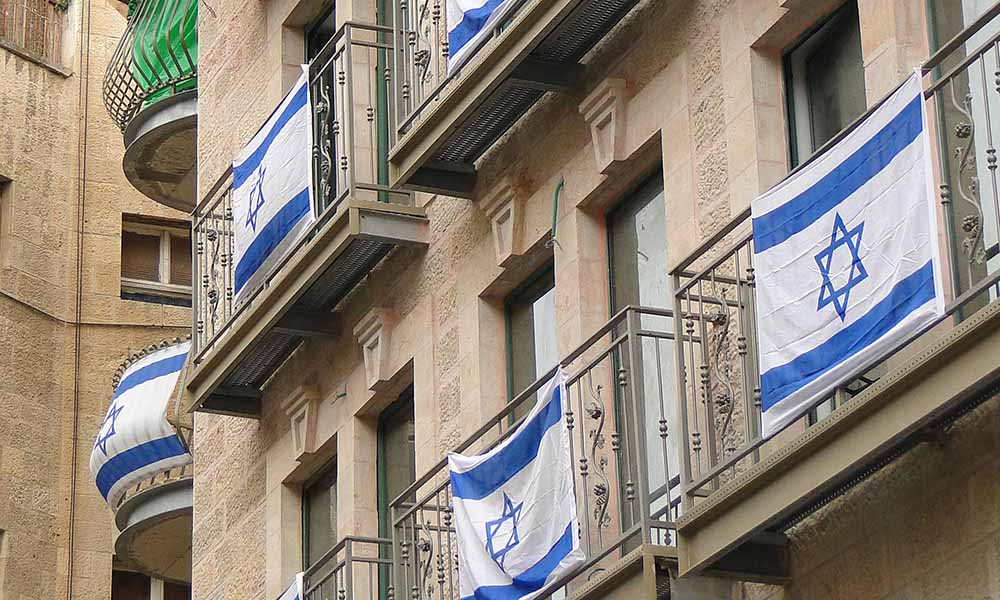After 50-something years, and to the astonishment of our children and grandchildren, at the end of June my husband and I packed up our things and left Jerusalem, moving halfway across the country to settle in Zichron Yaakov, a quaint, hilltop village overlooking the sea.
We are not alone. According to the Jerusalem Institute of Policy Research, Jerusalem has an average net departure of about 8,000 residents a year. (Jerusalem’s population in 2020 was about 944,000.)
Studies by the Institute show housing to be the top reason to move out for all populations—secular, religious, haredi and Arab—with employment and quality of life close behind. Residential housing all over Israel is in high demand and short supply. The blame falls mostly on the mistaken policies of the Israel Lands Authority, which owns 93 percent of Israel’s land, and local bureaucracy, which together have foiled the wide-scale building of affordable apartments. (This has made inexpensive abundant housing in Judea and Samaria all the more attractive even to those not ideologically motivated.)
Driving up prices even more in Jerusalem, however, is a unique problem: the desire to maintain green spaces around the city, which has stymied large-scale building plans on the periphery. A massive plan designed by famed architect Moshe Safdie that would have expanded the city westward was rejected by the Interior Ministry on environmental grounds in 2007.
There is something about Jerusalem that is almost an addiction
My own motives for moving fall into those general categories as well. The housing we left behind was a three-bedroom apartment on the ninth floor of a high-rise with stunning views of the walls of the Old City. What it didn’t have was a balcony. While this was always sadly missed, a year in COVID-19 lockdown made it an impossible situation, which saw me stretching out over window grilles meant to hold potted plants just to get some fresh air and sunlight.
Jerusalem, with its crowded roads, big, noisy malls and small apartments crowded together in ridiculously overpriced high-rises, wasn’t for us anymore, nor was an apartment accessible on Shabbat and holidays via an elevator that worked only 15 minutes an hour, leaving us—and our guests—to walk up nine flights if we missed it.
Most of all, we wanted to flee the contentious atmosphere of a city divided by judgmental religious zealots—both Jewish and Muslim—and a worsening security situation.
The political protests for and against Benjamin Netanyahu, including drum-pounding rioters of the Left, whose cars from Tel Aviv blocked our streets every Saturday night, and in-your-face right-wing flag wavers, who periodically took over the center of the city, were equally wearying. Then of course there was the constant tension over Islamist terrorists, whose activities waned and burst forth but never entirely disappeared. We carried the fear with us. I once nearly whacked an Arab workman with a newly purchased bunch of bananas when he suddenly approached me—just to have him innocently inquire where he could find the nearest grocery store.
Perhaps it was our age. We just wanted some peace and quiet.
Leaving what is arguably the most holy space to three monotheistic religions—not to mention the beating heart of the Jewish people for 3,000 years, the Kotel—was an enterprise fraught with guilt and true heartache. It seemed almost ungrateful, turning your back on a great honor and privilege. Beyond its holiness and history, there is something magical about Jerusalem that is almost an addiction. Our first choice was to stay nearby. But when we looked, we came away shocked and disappointed. Expensive to begin with, prices were now in the stratosphere, artificially inflated by overseas landlords who only visit their tourist apartments in ghost buildings once or twice a year, keeping them as an investment or insurance against rising antisemitism at home. An apartment similar to our own with a balcony on a low floor (forget about a garden) could cost up to $3 million.
We chose Zichron Yaakov because a decade earlier I’d written an article comparing it favorably with the rather run-down Safed and had been so charmed with it that we went back every summer for vacation. So when, after COVID-19, we heard from our real estate agent that “a place I think you’ll both love” had come on the market, it seemed like fate.
We did love it, and we do. From the giant porch off my new office where I type these words, I can see the huge trees of my own garden and newly planted summer flowers rioting in every hue in terracotta pots leading up to a front door that will allow me to exit and enter whenever I please, only six steps away from the street. Beyond is the back entrance to the huge Ramat HaNadiv botanic garden and, just below, the sea.
According to studies done by the Jerusalem Institute, almost half of those leaving Jerusalem would like to return. But for that to happen, housing prices would have to go down, a present impossibility. Even so, I would never want to rule that out, however much the place where I now live fulfills my needs. For although I have left Jerusalem, Jerusalem has not left me.
Naomi Ragen’s latest novel, An Observant Wife, is out this month.


